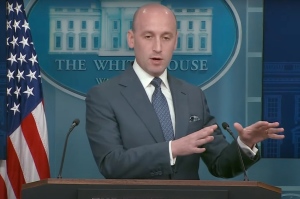M.I.A. says Jesus 'saved' her in time of need, refuses to 'censor' faith: 'I know the truth'

Mainstream artist M.I.A. recently opened up about her newfound Christian faith and shared details about the vision of Jesus that turned her life “upside-down” and compelled her to use her platform to share the “truth” she refuses to “censor.”
In an interview with Relevant magazine, Mathangi “Maya” Arulpragasam, also known as M.I.A., shared more about a vision of Jesus Christ she had in 2016 that convinced her to become a Christian despite years of pushing back against tradition.
The “Paper Planes” singer told Relevant that her vision of Jesus took place “in the middle of nowhere. No cell phone service, et cetera.”
“I wasn’t asleep,” she says. “It wasn’t a dream. It wasn’t a hallucination.”
“My first reaction was to laugh,” she says. “I couldn’t believe that’s what was happening. I just couldn’t believe it was real. I didn’t believe Jesus was real. I always thought He was made up, or not even made up, but I just always thought it was a silly story.”
“I literally got saved in a very physical sense,” she says. “And I think that’s what it is. When you need saving, the person who turns up — no matter who you are and no matter what religion or no matter what status or what you are — if you are in need and you need saving, the person who turns out to save you is Jesus. That is what He’s known for.”
Though born in London, M.I.A.’s family moved back to their native Sri Lanka when she was a baby. There, her father fought against Tamil oppression, moving his family from Jaffra to Madras in India. When M.I.A. was 10, her family fled to London as refugees, where her mother became a Christian. Her father was an atheist who saw religion as a “form of control.”
M.I.A. said that though she always maintained an affinity for Hinduism, her mother’s Christian faith never interested her — until she saw Jesus, an experience that she told The Guardian gave her an “existential crisis.”
“In my time of need, the God that turned up to save me was not Shiva. It was Jesus,” she said, referring to one of the many deities of Hinduism. “That is the truth, and I have to say that.”
Though she’s still figuring out the details of her faith, the artist said, “the only clear thing I can say is that even when I had no belief in Jesus Christ and Christianity, and even when I was 100 percent comfortable in Hinduism, it was a Christian God that turned up to save me,” she said. “And I think there is truth in that.”
“I’m so new to it,” she added. “It’s not like I can recite all the verses of the Bible and stuff like that.”
M.I.A. first opened up about her vision of Jesus and her newfound faith in an interview with Zane Lowe on Apple Music earlier this year.
“Since then, my head has been in a totally different place. Being a Tamil and being a Hindu, I was very comfortable that I’d arrived finding myself. Which is, I think, going to be weird for America to process,” she said at the time. “But I had a vision and I saw the vision of Jesus Christ.”
“It’s very creatively a crazy thing because it turned my world upside down,” she continued. “Because everything I thought and believed was no longer the case. And I think that was maybe a sign that something major was going to happen in the world and that people were needing to be introduced to this concept.”
She revealed on the Apple podcast that before her vision, she found the concept of Christianity to be “basic,” but said she now considers herself a “born-again Christian.”
An activist, the artist has always been outspoken about hot-button issues. In 2006 she was banned from entering the U.S. for a time due to her controversial lyrics and her alleged support for the Tamil Tigers, a Sri Lankan guerrilla group regarded as a terrorist organization by the U.S. government.
In recent months, she’s also addressed identity politics, cancel culture and even the COVID-19 vaccine.
She told Relevant that Christianity intersects with her passion for speaking up for the oppressed and caring for the poor and needy, adding: “The concept of Christianity is very much based in being there for the needy or helping the needy and saving people and giving people a clearer path to God.”
M.I.A. recently released her latest album, MATA, via her new label, Island Records. She told Relevant that the album is informed by her newfound faith, though she wants to maintain her signature sound.
“I feel like I got shown something, which now I cannot censor in my life and be like, ‘Christianity is fake or Christianity is social control. It’s made up to colonize people,’ whatever the thing is,” she said. “I can never say that because I actually know the truth.”
Leah M. Klett is a reporter for The Christian Post. She can be reached at: leah.klett@christianpost.com





























